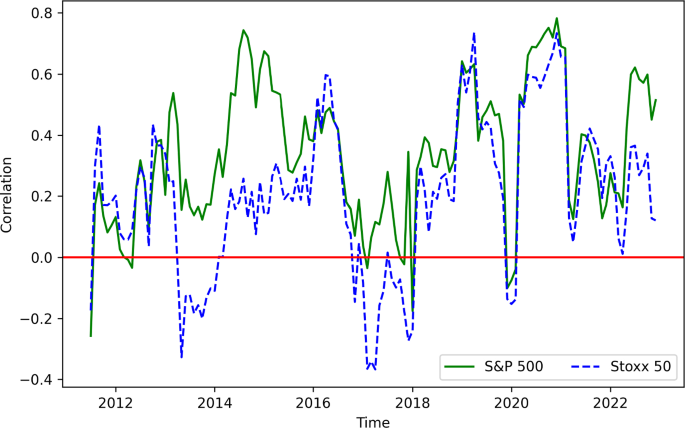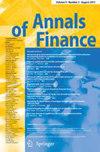关于比特币,货币政策能告诉我们什么?
IF 0.7
Q4 BUSINESS, FINANCE
引用次数: 0
摘要
比特币爱好者辩称,它不受央行决策的影响,是一种对冲通胀的工具。通过与美联储和欧洲央行的决策相关的高频货币意外,我表明这些说法没有得到数据的支持。比特币系统地对货币和央行的信息冲击做出反应。我发现这些反应随着时间的推移而变化:不仅会改变大小,有时还会改变反应的符号。美联储的反通胀冲击推高了比特币的价格,而欧洲央行的冲击则降低了比特币的价格,因此比特币作为一种通胀对冲手段几乎没有得到支持。本文章由计算机程序翻译,如有差异,请以英文原文为准。

What can monetary policy tell us about Bitcoin?
Bitcoin enthusiasts argue that it is free from central banks decisions and it is a hedge against inflation. Using high-frequency monetary surprises associated with decisions made by the Fed and the ECB, I show that these claims are not supported by the data. Bitcoin systemically reacts to monetary and central bank information shocks. I find that these reactions vary over time: not only by changing the magnitude but sometimes sign of reaction. Fed’s disinflationary shocks increase Bitcoin price, while the ECB’s decrease, hence providing little support for it as an inflation hedge.
求助全文
通过发布文献求助,成功后即可免费获取论文全文。
去求助
来源期刊

Annals of Finance
BUSINESS, FINANCE-
CiteScore
2.00
自引率
10.00%
发文量
15
期刊介绍:
Annals of Finance provides an outlet for original research in all areas of finance and its applications to other disciplines having a clear and substantive link to the general theme of finance. In particular, innovative research papers of moderate length of the highest quality in all scientific areas that are motivated by the analysis of financial problems will be considered. Annals of Finance''s scope encompasses - but is not limited to - the following areas: accounting and finance, asset pricing, banking and finance, capital markets and finance, computational finance, corporate finance, derivatives, dynamical and chaotic systems in finance, economics and finance, empirical finance, experimental finance, finance and the theory of the firm, financial econometrics, financial institutions, mathematical finance, money and finance, portfolio analysis, regulation, stochastic analysis and finance, stock market analysis, systemic risk and financial stability. Annals of Finance also publishes special issues on any topic in finance and its applications of current interest. A small section, entitled finance notes, will be devoted solely to publishing short articles – up to ten pages in length, of substantial interest in finance. Officially cited as: Ann Finance
 求助内容:
求助内容: 应助结果提醒方式:
应助结果提醒方式:


